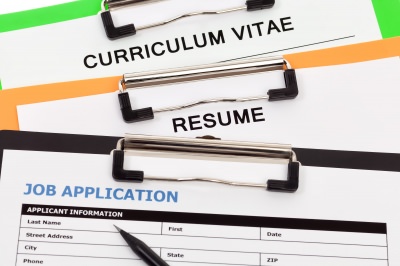Searching for any job is stressful. There are job search websites, specific company websites, social media, and person-to-person referrals. And after turning over stone after stone, you can still end up with nothing.
Take the difficulty and anxiety of this process, double it, and you’ve got a good idea of how seamless it feels to get a job within the government — state or federal.
 Image courtesy: Unsplash
Image courtesy: Unsplash
However, there’s a certain allure to working for the government. It’s one of the best places to feel as though you’re making a difference in your community and your country. Affecting change in your direct surroundings makes all of the stress of finding and landing a government job worth it in the end.
If you’re looking to find a vocation that simultaneously allows you to contribute to the improvement of society, there are a few rules you should know.

Image courtesy of phasinphoto at FreeDigitalPhotos.net
This seems painfully obvious, but more people than you’d think neglect filling out entire job applications. Incomplete job applications will never be considered, and this doesn’t just apply to government positions.
Filling out the entire application first demonstrates your ability to follow instructions, as well as your attention to detail.
In addition to filling in answers on the application itself, it is also crucial to provide any and all of the supplemental documentation that the employer is asking for.
Image courtesy of Stuart Miles at FreeDigitalPhotos.net
These aren’t the type of jobs where personality trumps all. It doesn’t matter how much you want a job if you don’t meet all the qualifications. If you aren’t qualified, you likely won’t get hired with the government.
Apply for jobs you’re qualified for. This even relates to positions that you’re overqualified for.
Experts say the most important and helpful practice you can adopt is to read job announcements thoroughly. Job announcements, or openings, will provide pertinent information for applications to know. If at first you don’t believe you’re qualified for the job, don’t stop reading. You never know which qualifications at the bottom of the page your experience or skills will align with most closely.
In some cases, your experience could even substitute for a four-year college degree.

Image courtesy of phasinphoto at FreeDigitalPhotos.net
You might think that a certain set of your skills and experience are transferrable to every position, but government entities likely won’t see it the same way — unless you point out how. Rather than try the “one size fits all” strategy, adjust your resumé to match each specific job’s qualifications.
Take these five steps to customize your resumé to ensure it passes through online keyword tests and impresses a human reader.
When making changes to your resumé, always analyze the job description, adjust your resumé’s “objective” to match the title in the job description, customize your skills to match terms used in the description, highlight your matching skills at the top of your resumé and confirm that your location is close to the position.
Following these steps will help your resumé stand out among the rest of the pack.

Image courtesy of Stuart Miles at FreeDigitalPhotos.net
Rarely do you get a call back from a future employer in a timely manner, since hiring you is not their first priority. In the government, it’s even worse.
You might need to apply for 20 to 30 jobs before you’re notified that you’ve been referred or have landed an interview. At this point, you’ve gotten into the system of whatever segment of the government you’ve applied for a job in, and its human resources specialists know your name.
From this point, the response time to your applications should go down — in theory. Even then, the process can still be prolonged, so you be diligent in your follow-up phone calls.
This isn’t, of course, an invitation to pester human resources directors to death. It’s advice that you should call back every 10 days or so, depending on the projected timeline you’ve been told, to check on the status of your application.
Persistence is a good demonstration of your motivation, to a certain extent. Once you get that interview invite, it’ll have been worth it.

Image courtesy of tiniroma at FreeDigitalPhotos.net
Don’t go into an interview flying blind. Interviewers are rarely impressed by a candidate’s ability to “improv.”
Based on the qualifications you’ve been asked to demonstrate, the job description and any firsthand accounts of such a position you can get your hands on, formulate answers to any possible question you can think of.
Try making flashcards, putting a potential question on one side then writing a possible answer to each question on the other side of the card. Practice answering each potential question until you can confidently give your answers.
Interviewers are always impressed when a candidate has prepared beforehand for any questions they might ask. You sound as polished and competent as you are, and it reflects very well on your work ethic. Even if you don’t get the particular position you apply for, you could make a good impression that sticks with department heads.
And good impressions go a long way.
Posted In: Career Ideas, Job Search, Tips for Jobseeker
Tagged: Do's, do's & don'ts, Don'ts, Federal, Federal Job, Federal Jobs, government, government job.